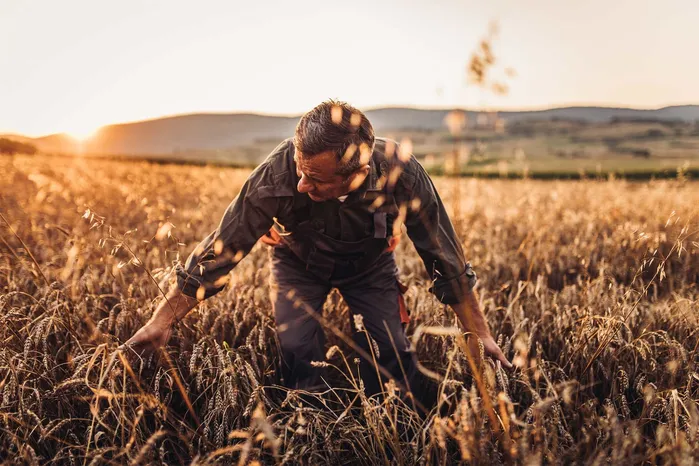Organic principles make agricultural and food production systems resilient and climate-friendly. Organic farmers and eco food producers help strengthen the foundations of life and at the same time work innovatively with nature. And they are making ecological principles the driving force behind resilient food production systems. And this is exactly what the most comprehensive international organic congress will be focusing on, when the organic food and natural and organic cosmetics community gathers for the next round of the combined BIOFACH and VIVANESS trade fair from 15 – 18 February 2022. Over four days on-site and online, the organic sector will discuss a highly topical issue with socio-political impact.
Following a successful digital edition in 2021, NürnbergMesse is planning to host BIOFACH und VIVANESS 2022 on-site again at Exhibition Centre Nuremberg with a new Tuesday to Friday schedule. The spotlight will be on the on-site event with digital add-ons that build on the positive digital experiences from 2021 to offer customers the greatest possible added value. One of the numerous extra benefits is that selected presentations from the BIOFACH and VIVANESS congress will be available as live streams and on-demand.
Every year, the key theme of the congress is determined by the international patron of the world’s leading fair for organic food, IFOAM – Organics International, and national supporting institution BÖLW (German Federation of Organic Food Producers) in partnership with BIOFACH.
Louise Luttikholt, Executive Director IFOAM – Organics International, had this to say about the main congress theme ‘Organic.Climate.Resilience’: “The last few years have shown that we need sustainable food systems that mitigate and withstand the effects of the climate crisis and can adapt to them in the best possible way. We need food systems that are stable and resilient against exceptional climatic events to ensure that everyone has access to an adequate and sustainable supply of healthy food. Our own fragility and that of our planet and food systems has become even more clear to us during the global pandemic. COVID-19 has also opened our eyes to the greatest global crisis that we are facing: the climate crisis.”
“Science confirms that extreme global events like the climate crisis or pandemics are connected to the way we treat the natural environment. But the scientists are also telling us not to lose heart. They say that it is within our power to solve the crisis. To do so, organic farming needs to become the new normal. There is an urgent need to develop resilient systems from farm to fork. How we produce our food, organise our farms and do business sustainably will be a mammoth task for every government and for every one of us,” says Tina Andres, who is set to take over as chair of BÖLW, the peak German organic body, on 11 November 2021.
Louise Luttikholt: “In the face of global pandemics we see the necessity for resilience more than ever. The climate crisis in particular is jeopardising our natural resources and consequently our farming and food systems. The good news is that as a system based on the principles of health, ecology, fairness and care, the organic system is already working, as millions of farmers and food producers worldwide are demonstrating.”
Tina Andres reiterates: “The organic system makes food production more resilient. Organic farmers only keep as many animals on their land as the climate and soil will sustain. And there is another climate benefit under our feet, namely in the soil. Organic farmers keep their soils healthy. They can then cope better with extremes of weather like drought or heavy rainfall. With humus-rich soils, organic farmers effectively sequester excess CO2 from the atmosphere. If we can increase the amount of carbon sequestered in the soil by just 0.4 % a year, we can stop the annual increase in CO2, one of the main causes of the climate crisis. The organic system doesn’t just stabilise individual farms, but as part of the bigger picture ensures greater security for the local economy and community. Another key that we hold in our hands is ‘climate-friendly eating’.”
Effects of organic system on resilience and “farm to fork” strategy
The organic system also has a positive influence on climate protection: According to the Thünen Report 65, empirical measurements show that soils under organic management in our moderate climate zones produce fewer greenhouse gases. Organic soils have on average a 10% higher content of organic soil carbon. By means of photosynthesis, they take CO2 out of the atmosphere and store it permanently in the humus.
In Europe, the “Farm to Fork” strategy has recently promoted the idea that farming needs to play an important role in boosting the resilience of diverse and often unique agricultural systems.
As well as the introduction of organic cultivation methods, the development of resilient food production systems requires a gradual renouncement of chemical fertilisers that are responsible for most of the harmful nitrous oxide emissions released to the atmosphere, a reduction of food waste, which accounts for up to 10% of greenhouse gas emissions, and a shift to more climate-friendly nutrition.



